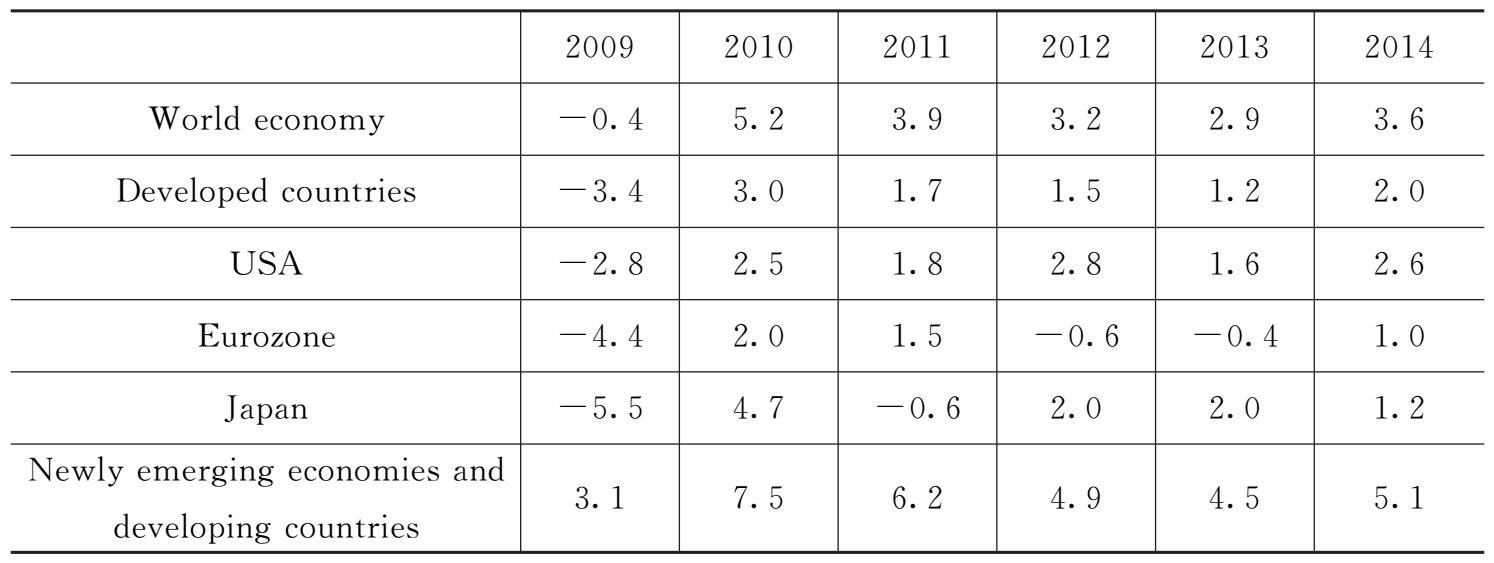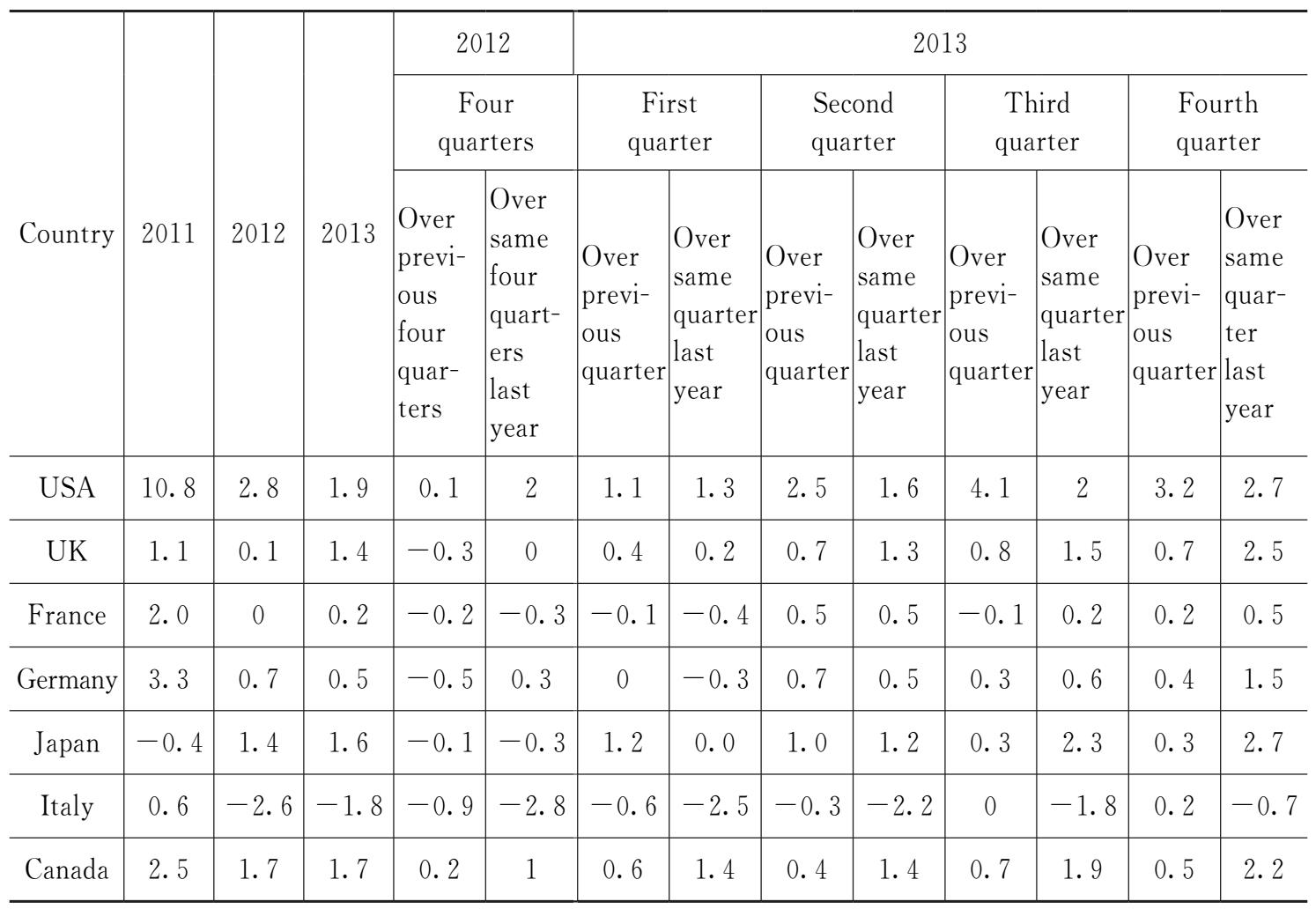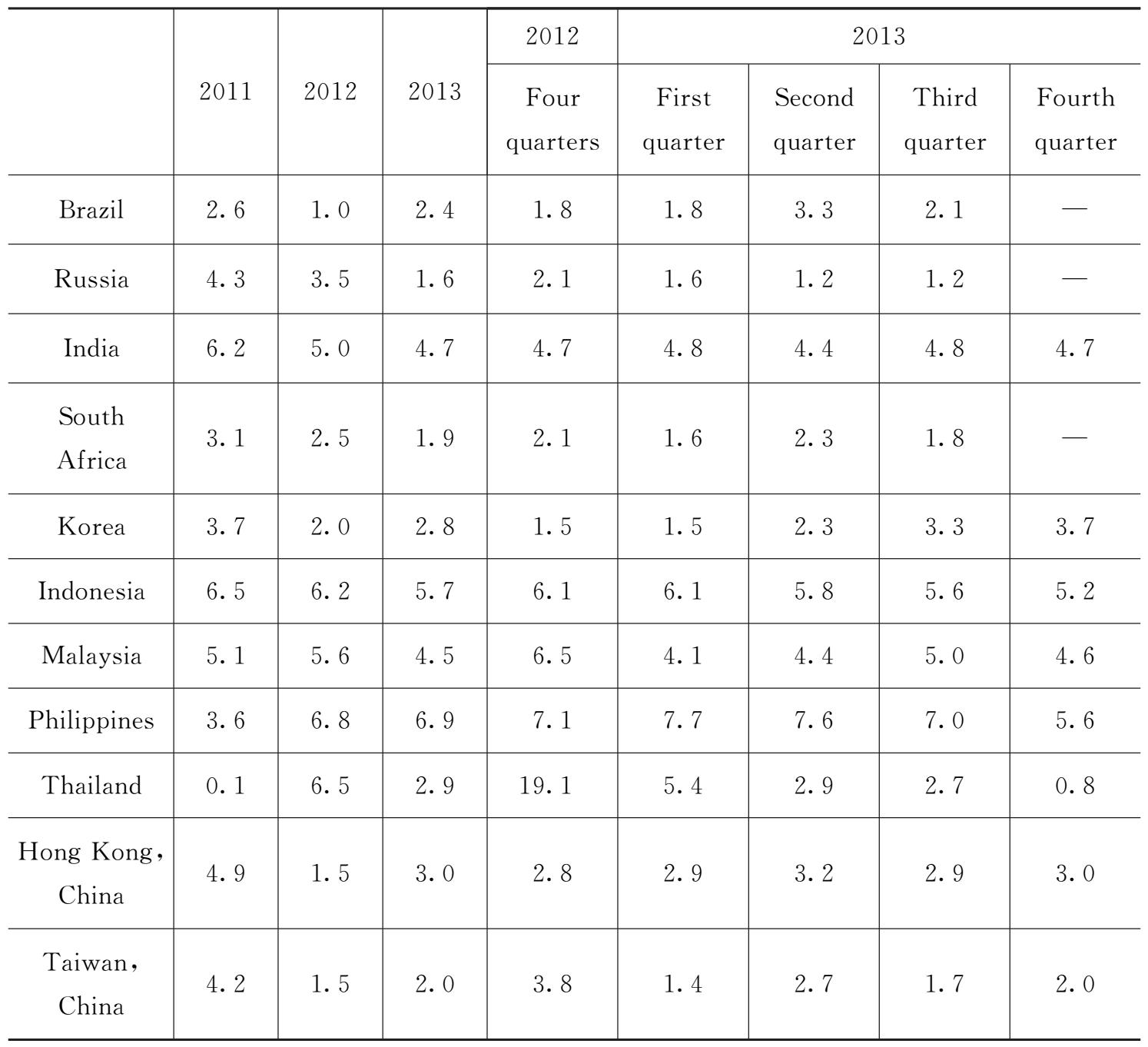




In the aftermath of the 2008 International Financial Crisis,the global economy stepped onto a revival path characterized by complexity and fragility.Uncertainty and imbalance have become important features of world economic development,and the strategies of different countries are in constant adjustment.
In 2013,the world economy continued to recover in a stage of fragility,stimulated by certain policies.The overall situation was relatively stable,but growth was sluggish,maintaining a pattern of“weak growth".The International Monetary Fund(IMF)stated that in 2013 the world economy grew by 2.9%,a decrease of 0.3%over the previous year,and the lowest growth rate after the financial crisis(see Table 2.1).Global industrial production grew by 2.7%,0.6%lower than the previous year.Global trade grew by 2.7%,maintaining its gloomy path.The global Consumer Price Index(CPI)increased by 3.2%,a decline of 0.1%over the previous year.
In 2014,the IMF forecast that the global economy growth would increase to 3.6%,or 0.7%higher than 2013.This growth rate was labeled as“a relatively low mid-term growth trail"(see Table 2.2 and Table 2.3).
As one of the highest grade economic affairs conferences in the eyes of the Chinese Government,the Central Economic Working Conference held in December 2013 made the judgment that currently,“the world economy has left its pre-crisis phase of rapid development to the phase of adjustment characterized by in-depth transition".
Table 2.1 World Economic Growth Trend—2009-2014( %)

Note:2013 and 2014 figures are forecasts.
Source:IMF,World Economic Outlook,October 2013.
Table 2.2 G7's GDP Growth Rate( %)

Note:Apart from the US and Japan,the data for the fourth quarter of 2013 and the annual data for 2013 are from forecasts made by Consensus Forecasts in December 2013 and January 2014.
Source:The official statistics websites of the major economies and Consensus Forecasts Co.Ltd.of UK.
Table 2.3 BRIC Countries and Some Asian Economies'GDP Growth Rate over Same Period in Previous Years( %)

Note:The data for the fourth quarter of 2013 and the annual data for 2013 are from forecasts made by Consensus Forecasts Co.in December 2013 and January 2014.
Source:The official statistics websites of the major economies and Consensus Forecasts Co.Ltd.of UK.
However,under the influence of various factors,the uncertainty surrounding the global economic development continued to increase.These factors include the“re-grouping"of the economic alliances of developed countries,the“re-adjustment"of the currencies and financial polices of major countries,the collective predicament of newly emerging economies,the sustained volatility in the global financial market,and the sluggishness of the momentum for innovation and growth in various countries.